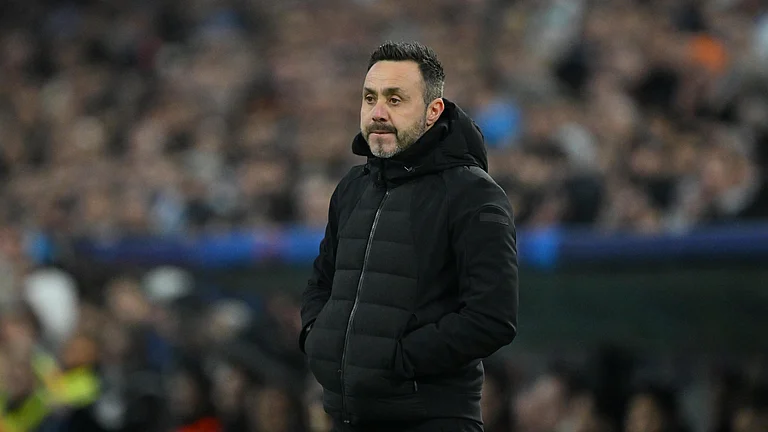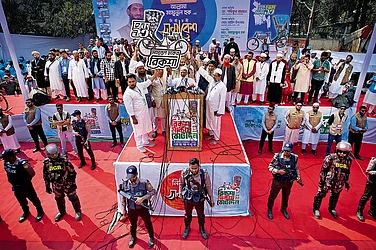Sudan's embattled capital awoke on Monday to a third day of heavy fighting between the army and a powerful rival force for control of the country, as the weekend's civilian death toll rose to 97.
Airstrikes and shelling intensified in parts of Khartoum and the adjoining city of Omdurman. Rapid, sustained firing was heard near the military headquarters, with white smoke rising from the area. Residents hunkering down in their homes reported power outages and incidents of looting.
The clashes are part of a power struggle between Gen. Abdel-Fattah Burhan, the commander of the armed forces, and Gen. Mohammed Hamdan Dagalo, the head of the Rapid Support Forces, a paramilitary group.
The two generals are former allies who jointly orchestrated an October 2021 military coup that derailed Sudan's short-lived transition to democracy. Both men have dug in, saying they would not negotiate a truce, instead engaging in verbal attacks and demanding the other's surrender. Still, both have powerful foreign backers, making them potentially susceptible to mounting diplomatic pressure.
Since fighting erupted on Saturday, 97 civilians have been killed and hundreds have been wounded, said the Sudan Doctors' Syndicate, a pro-democracy group monitoring casualties. There has been no official word on the number of fighters killed.
Footage posted online Monday purported to show RSF barracks in Omdurman. The bodies of dozens of men in camouflage uniforms were seen sprawled on beds and the floor of a medical ward and in a sandy outdoor area. Another video showed civilians inside the base, apparently looting food.
The authenticity of the videos could not be confirmed independently, but they surfaced after the military said it has targeted RSF bases with airstrikes. Mohmed al-Mokhtar al-Nour, an RSF adviser, told the Al Jazeera satellite network Sunday that RSF forces have withdrawn from the camp.
The doctors' group said a stray shell struck a hospital south of Khartoum on Monday morning, without causing causalities. The chaotic scenes of fighting with tanks, truck-mounted machine guns, artillery and warplanes in densely populated areas of the capital are unprecedented. Sudan has a long history of civil strife, but much of that has taken place in remote tribal areas, far from Khartoum.
The violence erupted during the Muslim fasting month of Ramadan which ends later this week and is capped by the three-day Eid al-Fitr holiday. On Sunday, the warring sides agreed to a three-hour pause in fighting to allow civilians to stock up on necessities. Compliance was spotty, and there were reports of casualties during the humanitarian pause.
Top diplomats urged the sides to stop fighting, including the US secretary of state, the UN secretary-general, the EU foreign policy chief, the head of the Arab League and the head of the African Union Commission. The UN Security Council was to discuss the developments in Sudan later on Monday.
US Secretary of State Antony Blinken renewed his call for a truce and a return to negotiations during a meeting of the Group of Seven wealthy nations in Japan on Monday. “People in Sudan want the military back in the barracks," he said. "They want democracy. They want the civilian-led government, Sudan needs to return to that path.”
The fighting also spread to the war-wrecked western Darfur region, and areas of northern and eastern Sudan, near the borders with Egypt and Ethiopia. Over the weekend, the World Food Program suspended its operations in Sudan after three of its employees were killed in fighting in Darfur.
In recent months, negotiations had been under way to get back on a path to democracy. Under international pressure, Burhan and Dagalo agreed to a framework agreement with political parties and pro-democracy groups.
However, the deal was vague on key points of dispute, including how the RSF would be integrated into the armed force and who would have final control. The signing of the deal was put off repeatedly, amid rising tensions between Burhan and Dagalo.





















